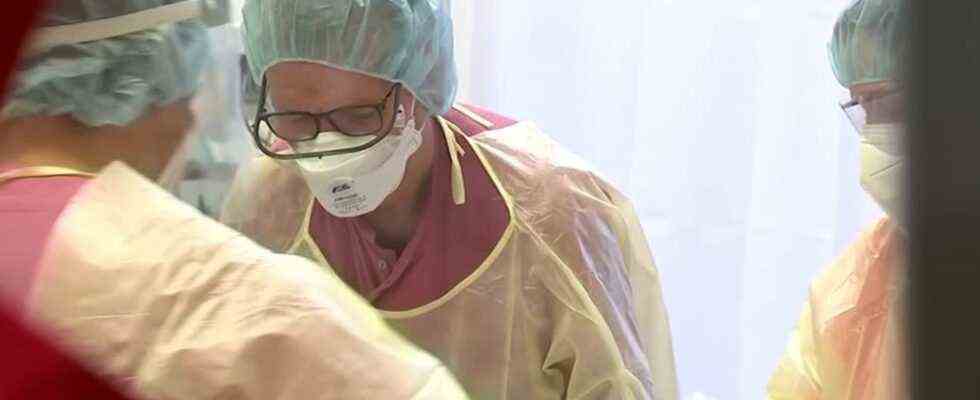Visit to the ward, in the Havelhöhe community hospital in Berlin. Intensive care patients are treated and cared for here. It is a particularly labor-intensive supply. The vaccination for people in nursing and medical professions, which has now also been approved by the Federal Council and will be mandatory from March 2022, could exacerbate the problem, feared Harald Matthes on Friday. The medical director of the hospital reports. “But virus excretions continue to occur over 5 or 6 days, so that vaccinations still have to be tested accordingly. That means that we will not be exempt from testing even if we have to be vaccinated, so in my opinion it is It is a very, very unfortunate fact that the nurses are now under pressure to get vaccinated. Caregivers who give up their jobs and leave their jobs. This is the last thing hospitals and clinics need during the pandemic. And yet: The stone has long since started rolling at stations across Germany. “We have a great loss of intensive care workers who are exhausted after the year and a half, who are frustrated, who have quit their jobs. And that is a catastrophe. Also the incentives or the appreciation that the care might have was accommodated in the first phase of the pandemic, it no longer exists. And that is why the caregivers do not feel adequately seen. And accordingly they are also frustrated. This means that we currently have 10,000 fewer intensive care beds that we can and are operating therefore, with the current numbers, which were still below those of the third wave, we are already at the limits. ” For the medical director, two factors come together. “We now have the fourth wave on the one hand, which is also homemade because we haven’t boosted. And we also have the loss of the intensive care beds, which are now leading to the escalation. And we already have the numbers that are below those of the third wave, capacity bottlenecks and move patients between the different federal states. ” And the situation here in the hospital? “In the last week we had the situation that we could no longer admit two patients who should have come from the peripheral ward to the intensive care unit. We could or had to move to another intensive care unit, so to speak. Otherwise we still have Patients from other intensive care units have also been taken over, but they are also at our limit. ” An exaggerated, dangerous situation, not only for the intensive care unit of the Berlin community hospital Havelhöhe, but also in many other cities in Germany.

